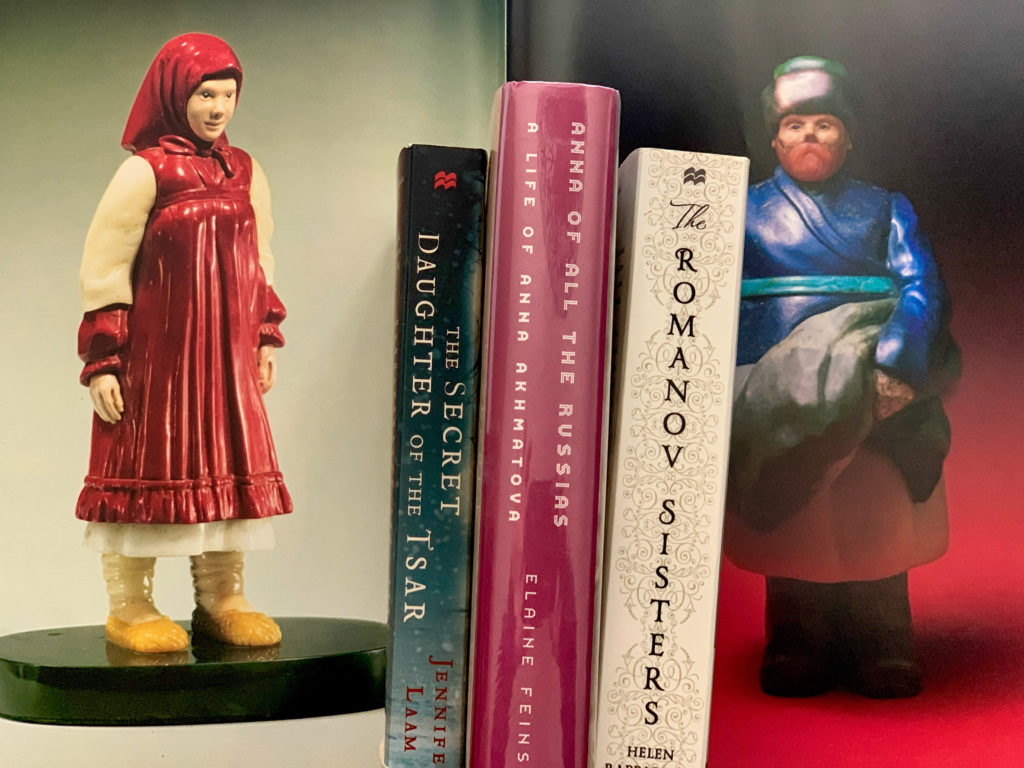
Last READS of the month
This month seemed so very long! However I got a TON of reading done. I am grateful. These last three were interesting. One I BAILED. yup. One I absolutely LOVED and the other was just good.
The Secret Daughter of the Tsar just wasn’t for me. I did not want to waste time with it so I skimmed it a bit and discarded it as a read and went on to another book. I will donate the book later. A compelling alternate history of the Romanov family in which a secret fifth daughter—smuggled out of Russia before the revolution—continues the royal lineage to dramatic consequences. Jennifer Laam seamlessly braids together the stories of three women: Veronica, Lena, and Charlotte. Veronica is an aspiring historian living in present-day Los Angeles when she meets a mysterious man who may be heir to the Russian throne. As she sets about investigating the legitimacy of his claim through a winding path of romance and deception, the ghosts of her own past begin to haunt her. Lena, a servant in the imperial Russian court of 1902, is approached by the desperate Empress Alexandra. After conceiving four daughters, the Empress is determined to sire a son and believes Lena can help her. Once elevated to the Romanov’s treacherous inner circle, Lena finds herself under the watchful eye of the meddling Dowager Empress Marie. Charlotte, a former ballerina living in World War II occupied Paris, receives a surprise visit from a German officer. Determined to protect her son from the Nazis, Charlotte escapes the city, but not before learning that the officer’s interest in her stems from his longstanding obsession with the fate of the Russian monarchy. Then as Veronica’s passion intensifies, and her search for the true heir to the throne takes a dangerous turn, the reader learns just how these three vastly different women are connected. The Secret Daughter of the Tsar is thrilling from its first intense moments until its final, unexpected conclusion.
Romanov Sisters was a very good historical read. I enjoyed the way it was written and the info.. The Romanov Sisters: The Lost Lives of the Daughters of Nicholas and Alexandra were the Princess Dianas of their day―perhaps the most photographed and talked about young royals of the early twentieth century. The four captivating Russian Grand Duchesses―Olga, Tatiana, Maria and Anastasia Romanov―were much admired for their happy dispositions, their looks, the clothes they wore and their privileged lifestyle. Over the years, the story of the four Romanov sisters and their tragic end in a basement at Ekaterinburg in 1918 has clouded our view of them, leading to a mass of sentimental and idealized hagiography. With this treasure trove of diaries and letters from the grand duchesses to their friends and family, we learn that they were intelligent, sensitive and perceptive witnesses to the dark turmoil within their immediate family and the ominous approach of the Russian Revolution, the nightmare that would sweep their world away, and them along with it.The Romanov Sisters sets out to capture the joy as well as the insecurities and poignancy of those young lives against the backdrop of the dying days of late Imperial Russia, World War I and the Russian Revolution. Helen Rappaport aims to present a new and challenging take on the story, drawing extensively on previously unseen or unpublished letters, diaries and archival sources, as well as private collections. It is a book that will surprise people, even aficionados.
Anna of All the Russians I absolutely LOVED. I found Anna so very intriguing and I loved every bit of reading the book. In this definitive biography of the legendary Russian poet, Elaine Feinstein draws on a wealth of newly available material–including memoirs, letters, journals, and interviews with surviving friends and family–to produce a revelatory portrait of both the artist and the woman.Anna Akhmatova rose to fame in the years before World War I, but she would pay a heavy price for the political and personal passions that informed her brilliant poetry. In Anna of All the Russias we see Akhmatova’s work banned from 1925 until 1940 and again after World War II. We see her steadfast opposition to Stalin, even while her son was held in the Gulag. We see her abiding loyalty to such friends as Mandelstam, Shostakovich, and Pasternak as they faced Stalinist oppression. And we see how, through everything, Akhmatova continued to write, her poetry giving voice to the Russian people by whom she was, and still is, deeply loved.
That is it for Russia. I will more than likely continue this plan of reading Russia in January as it was quite a pleasure.


